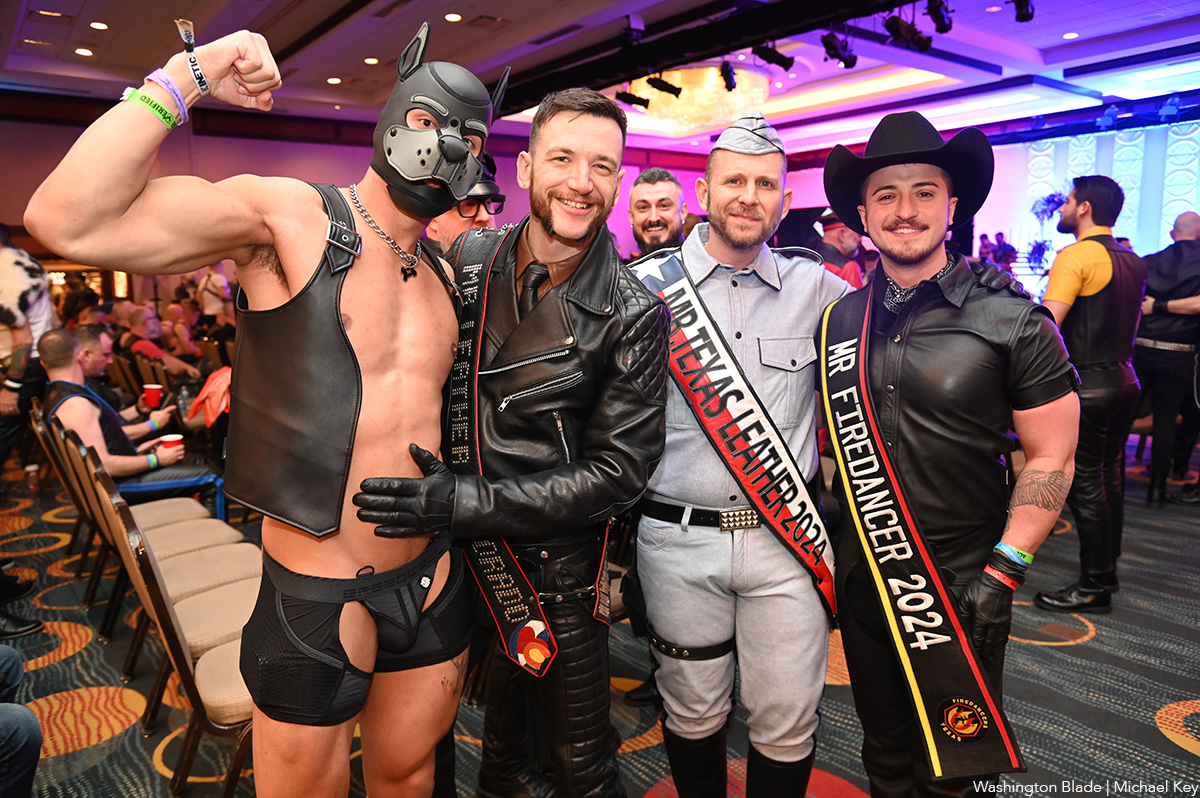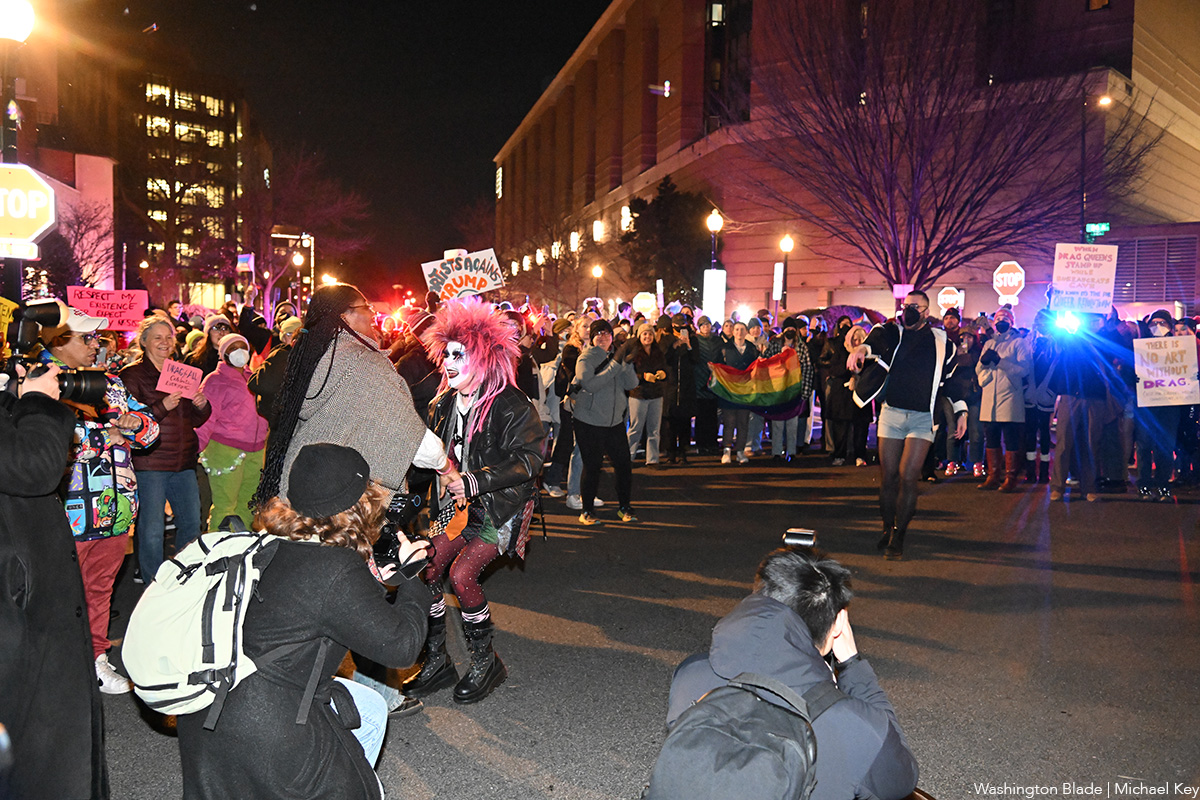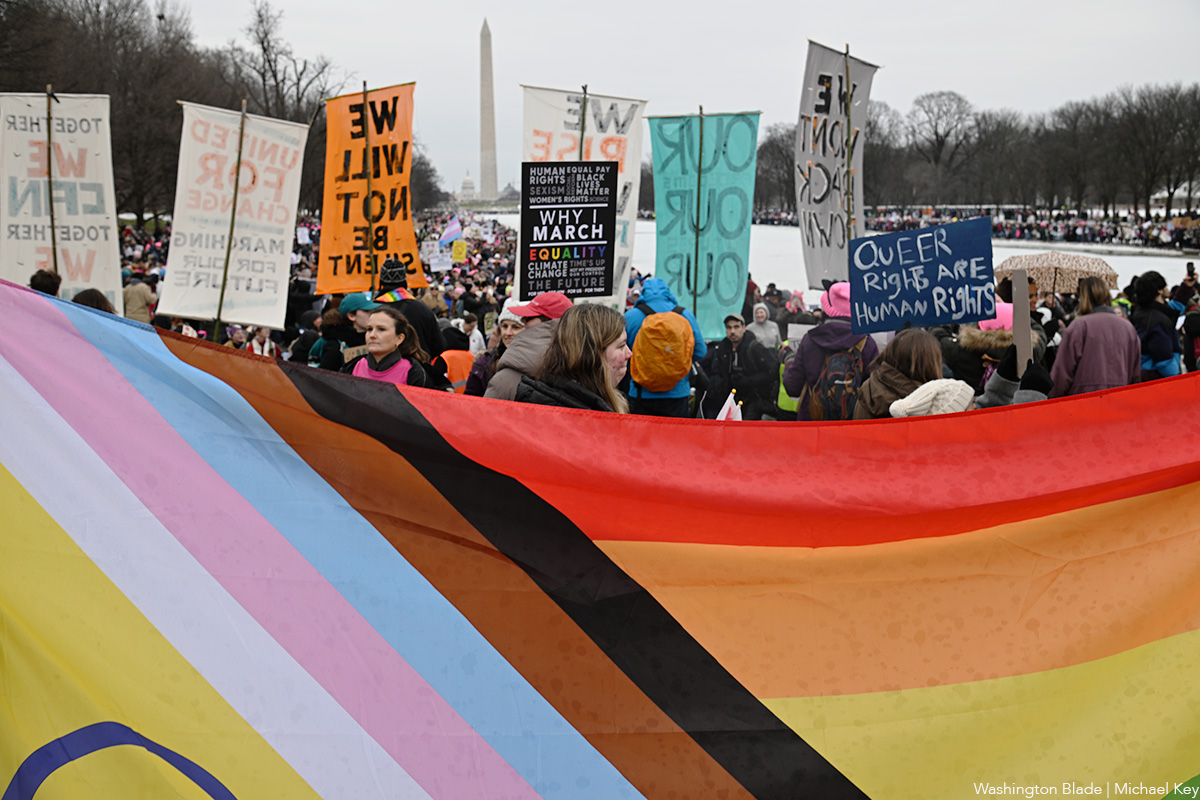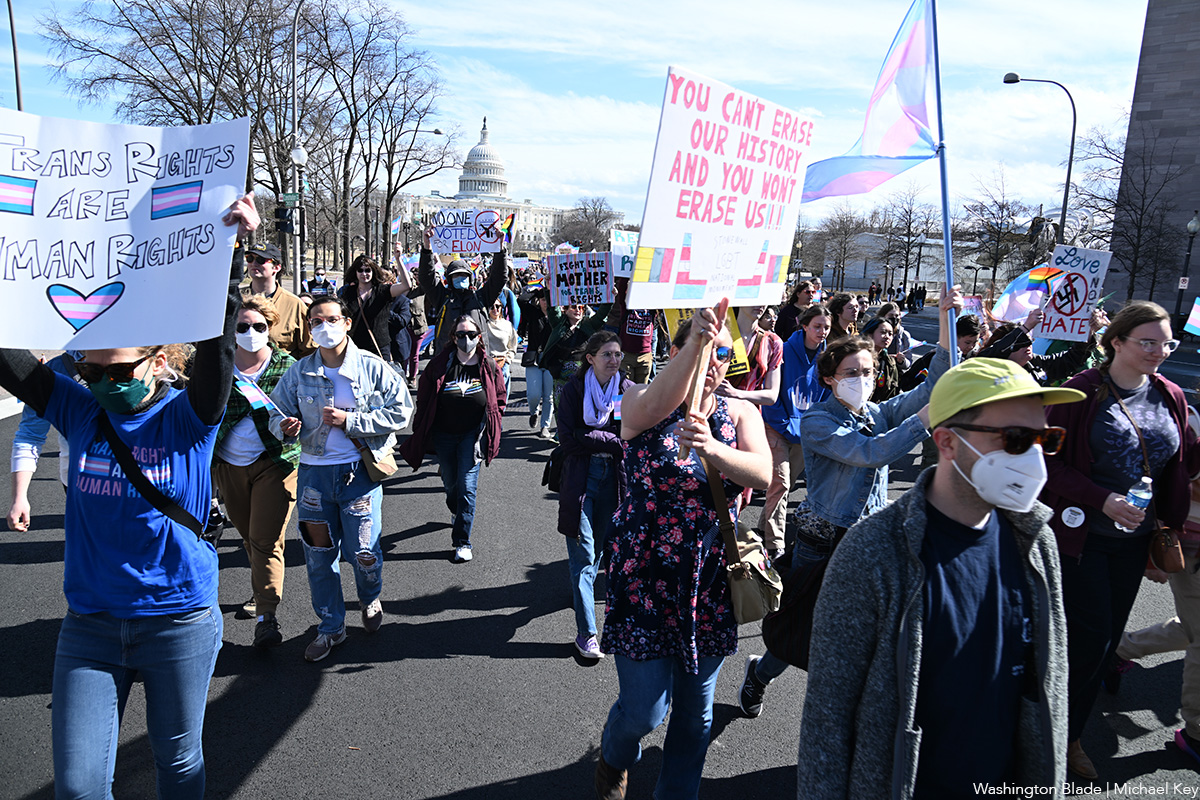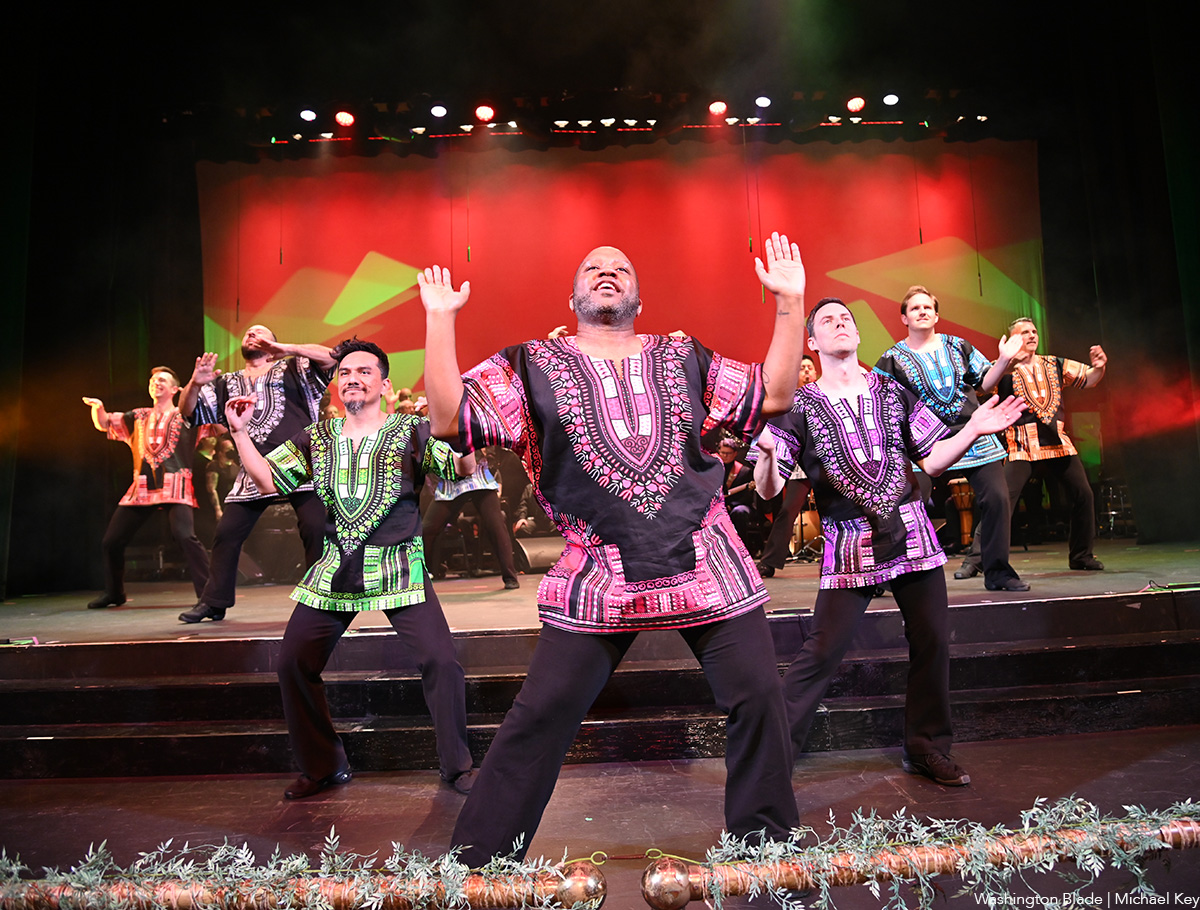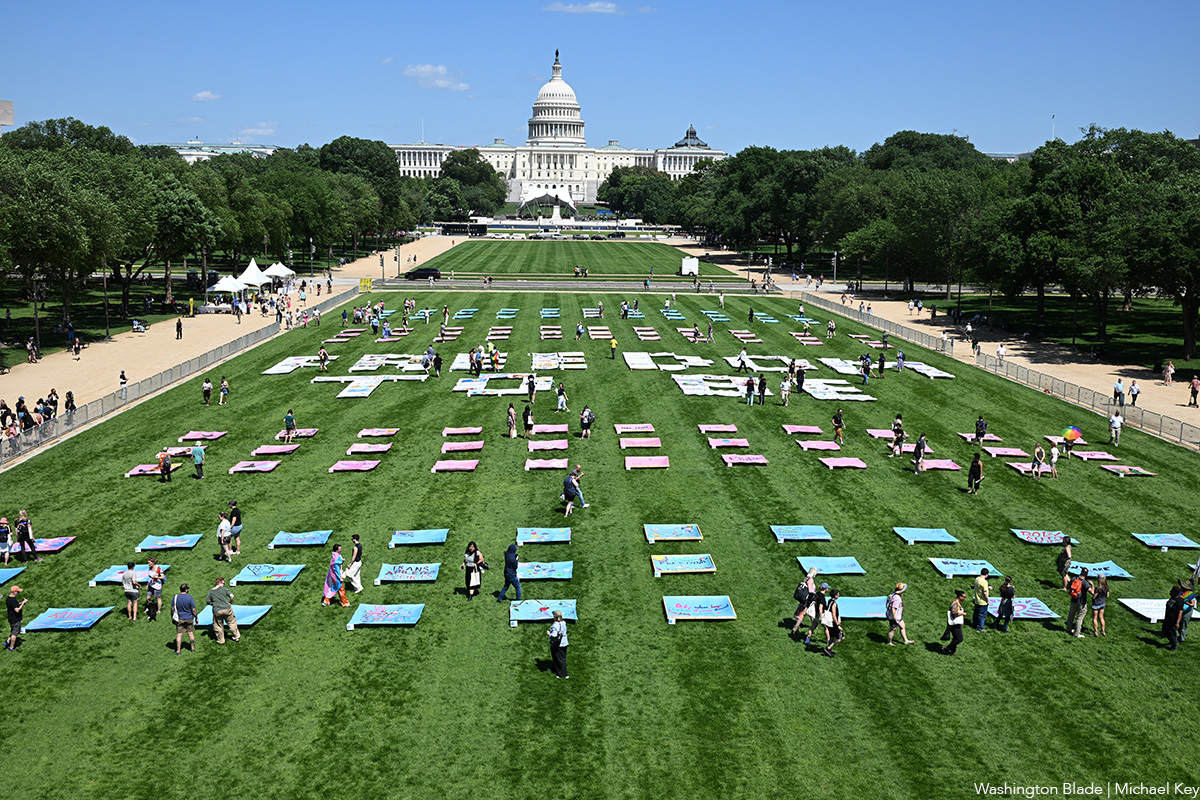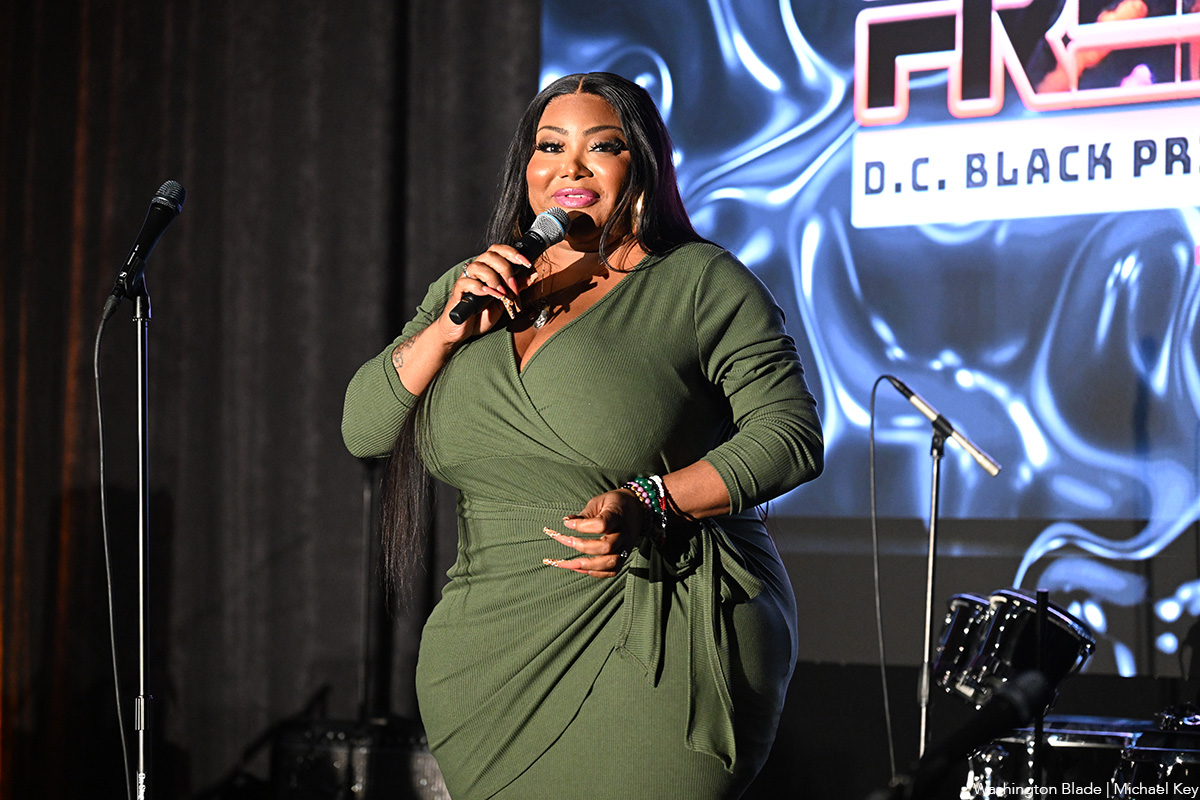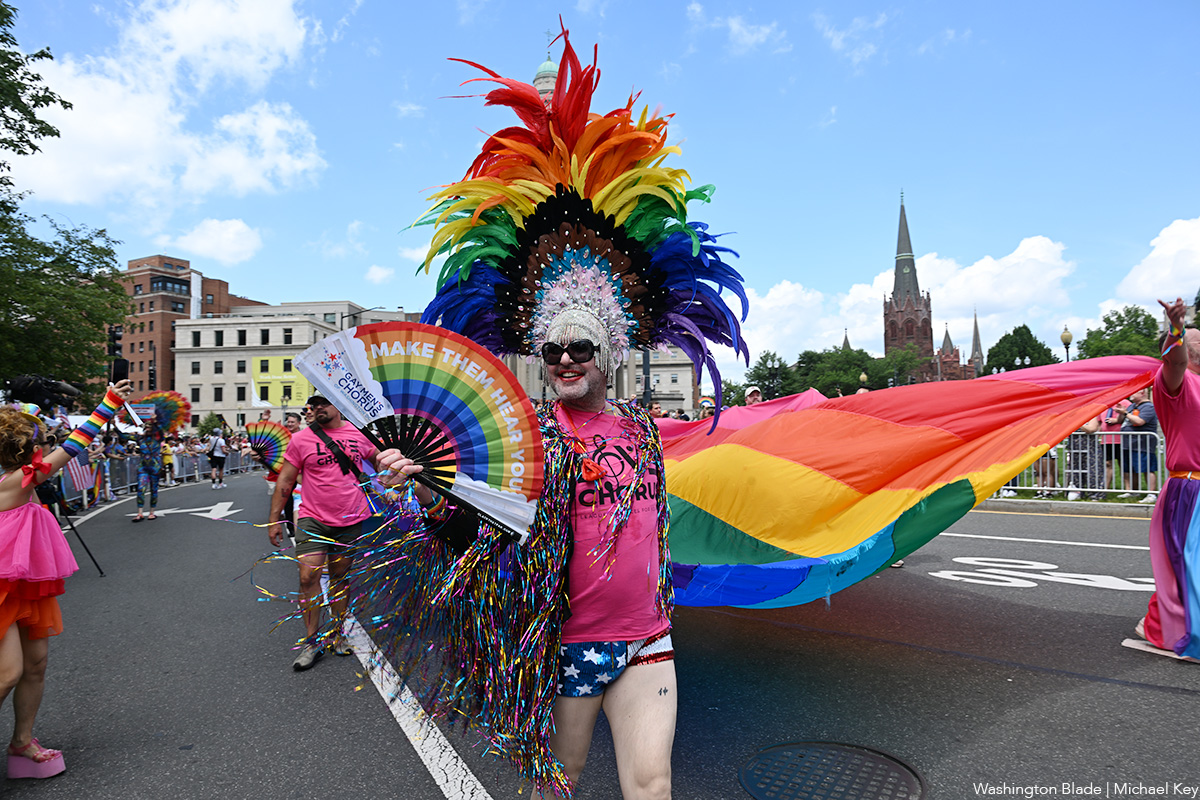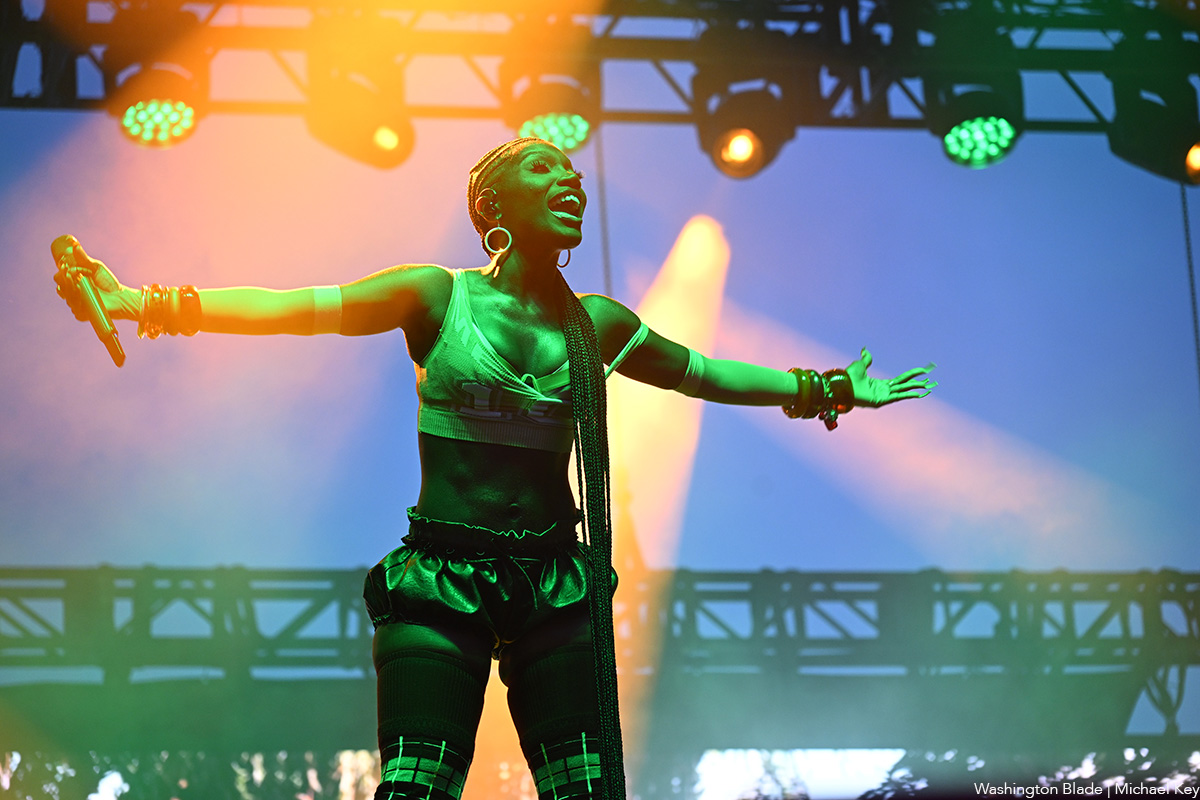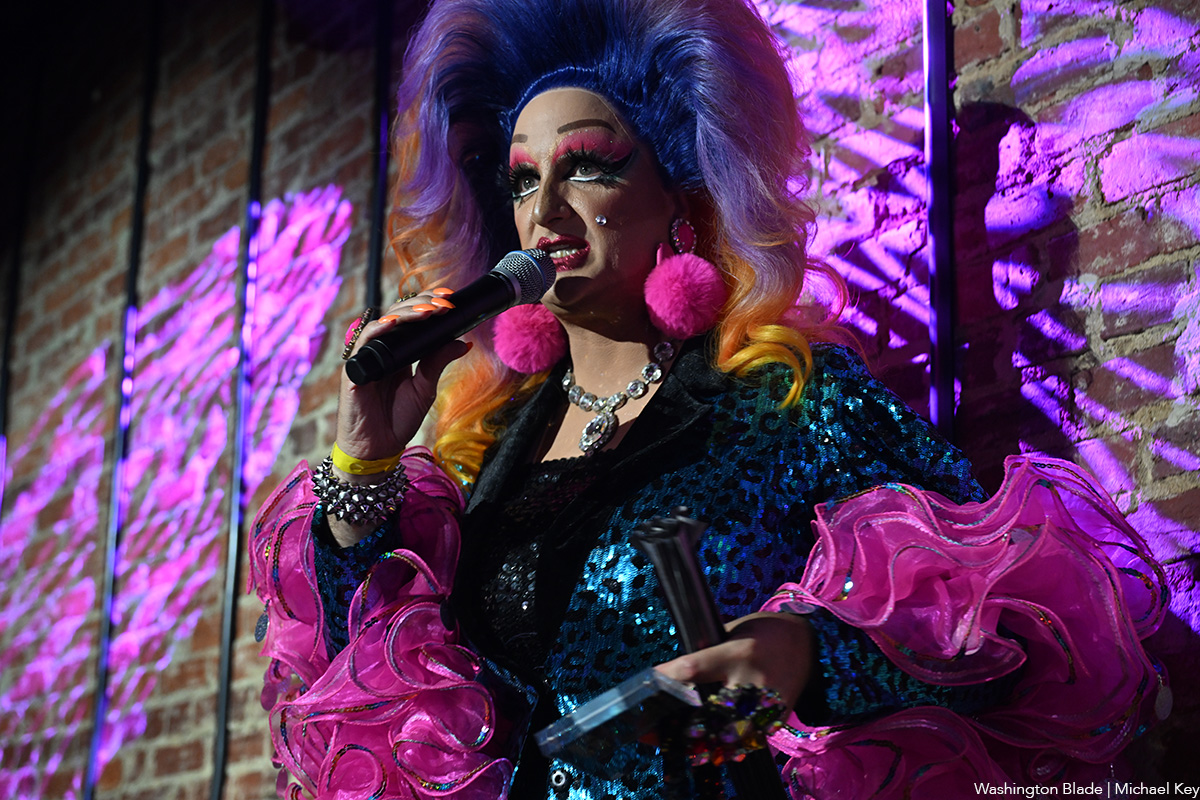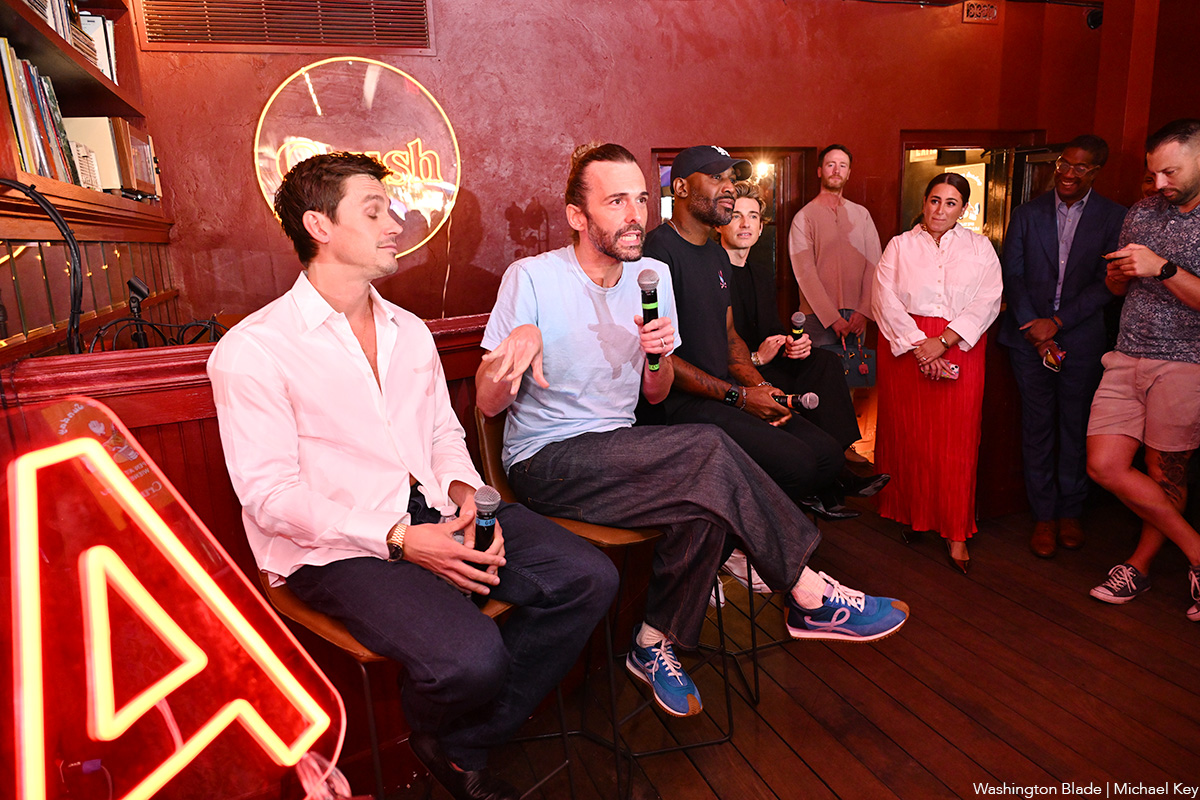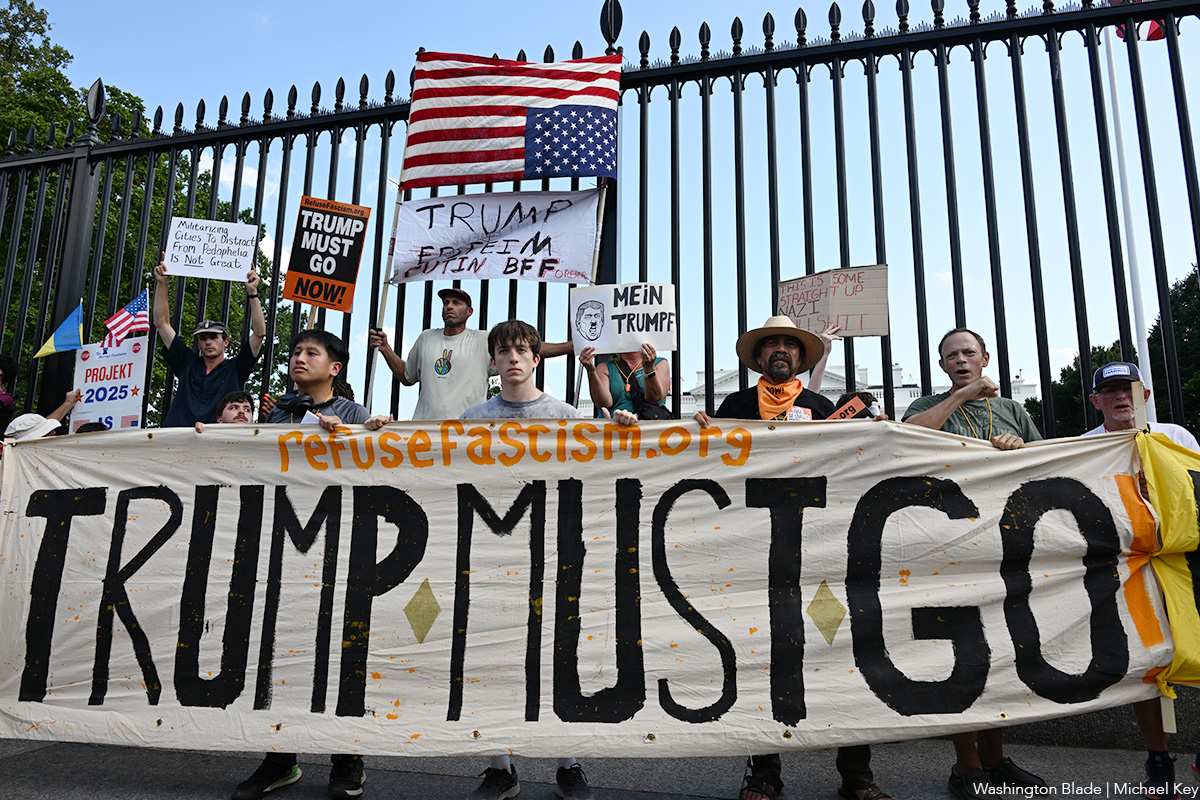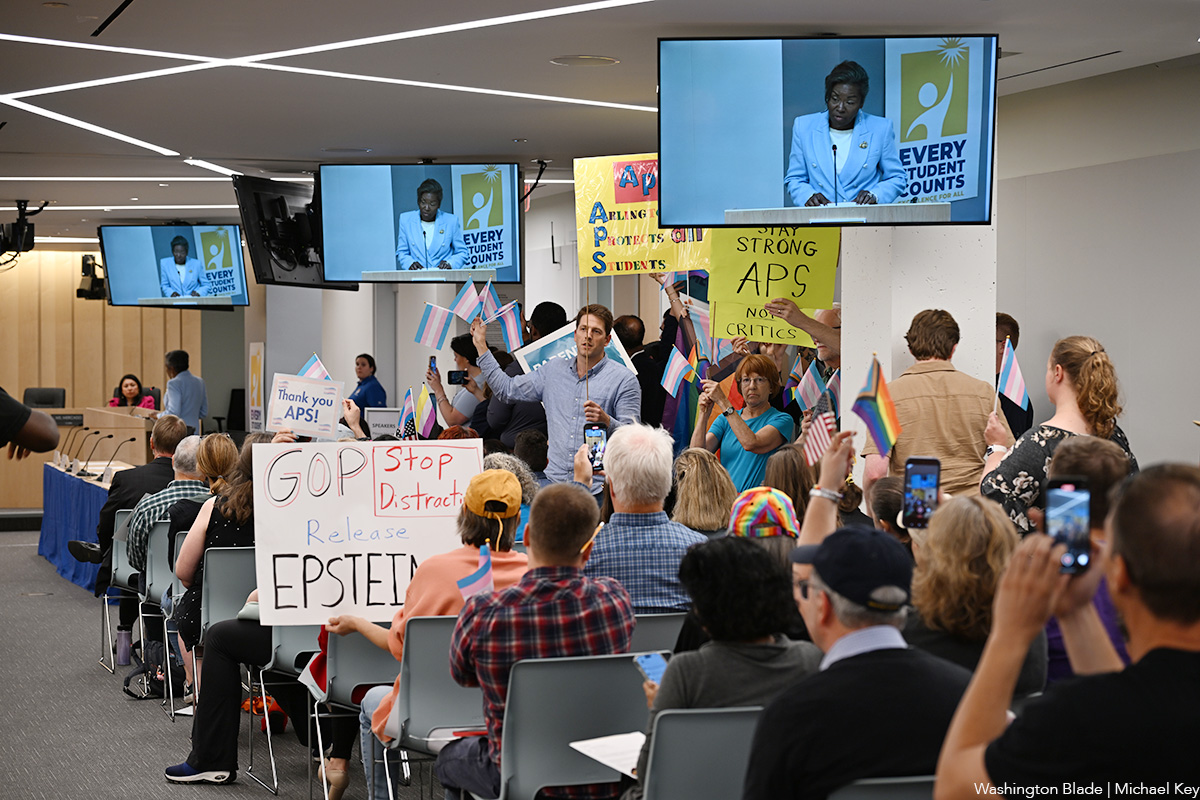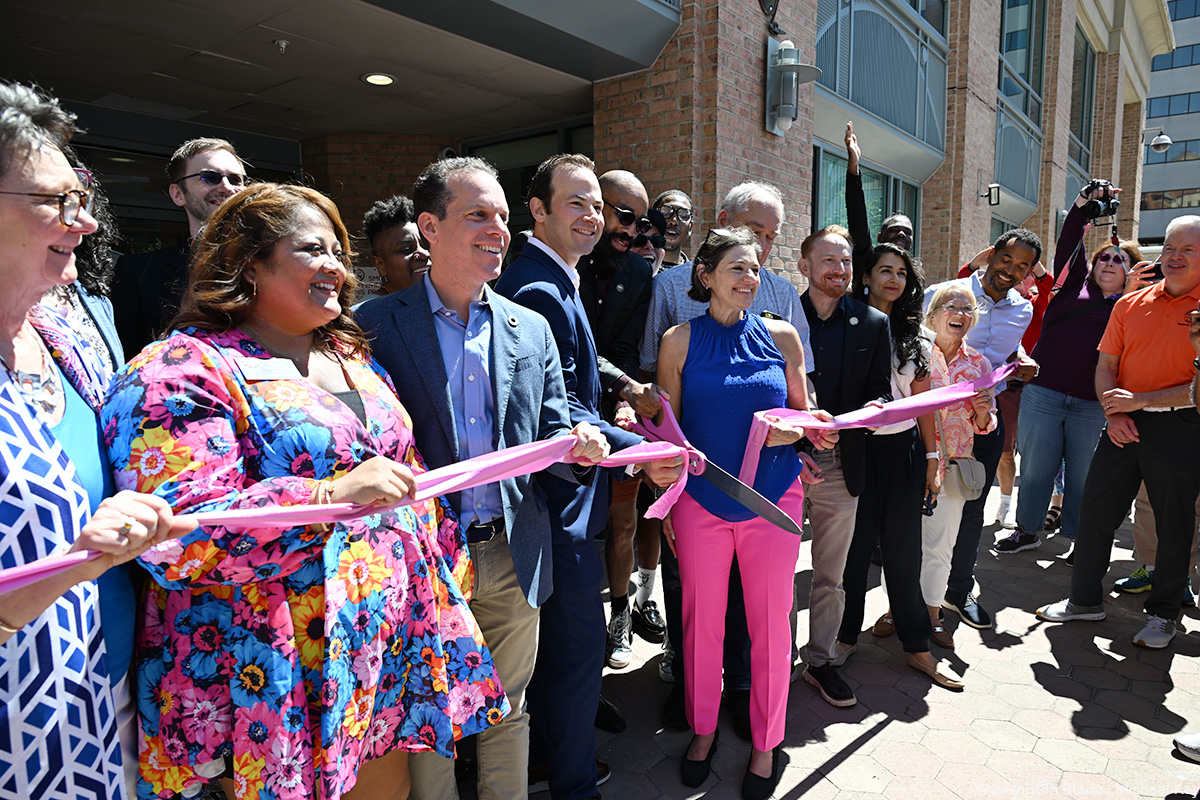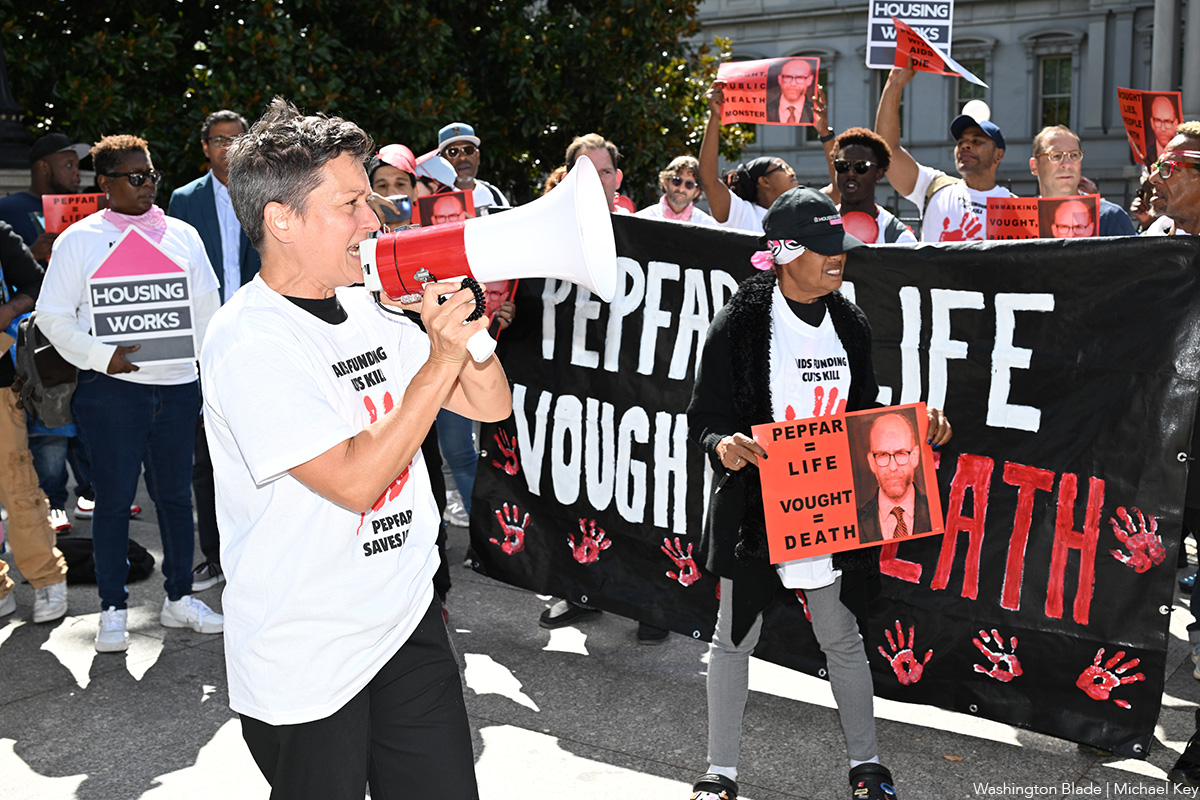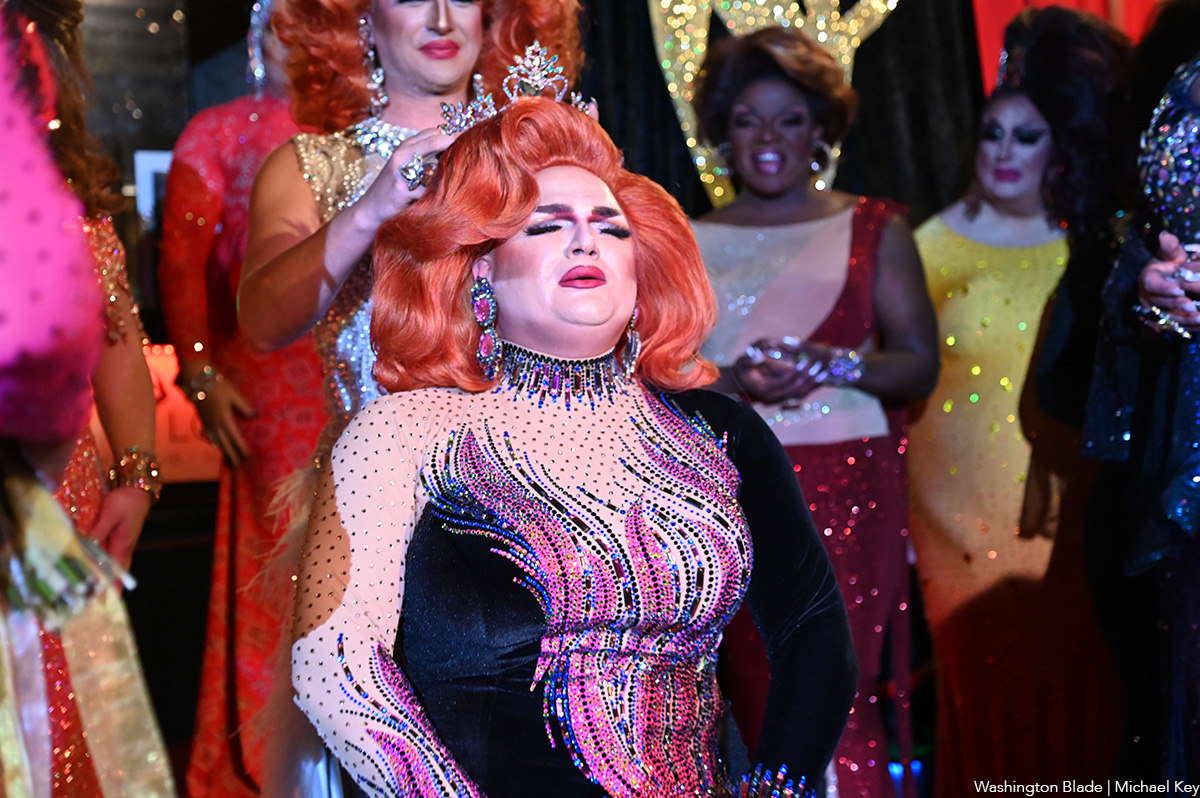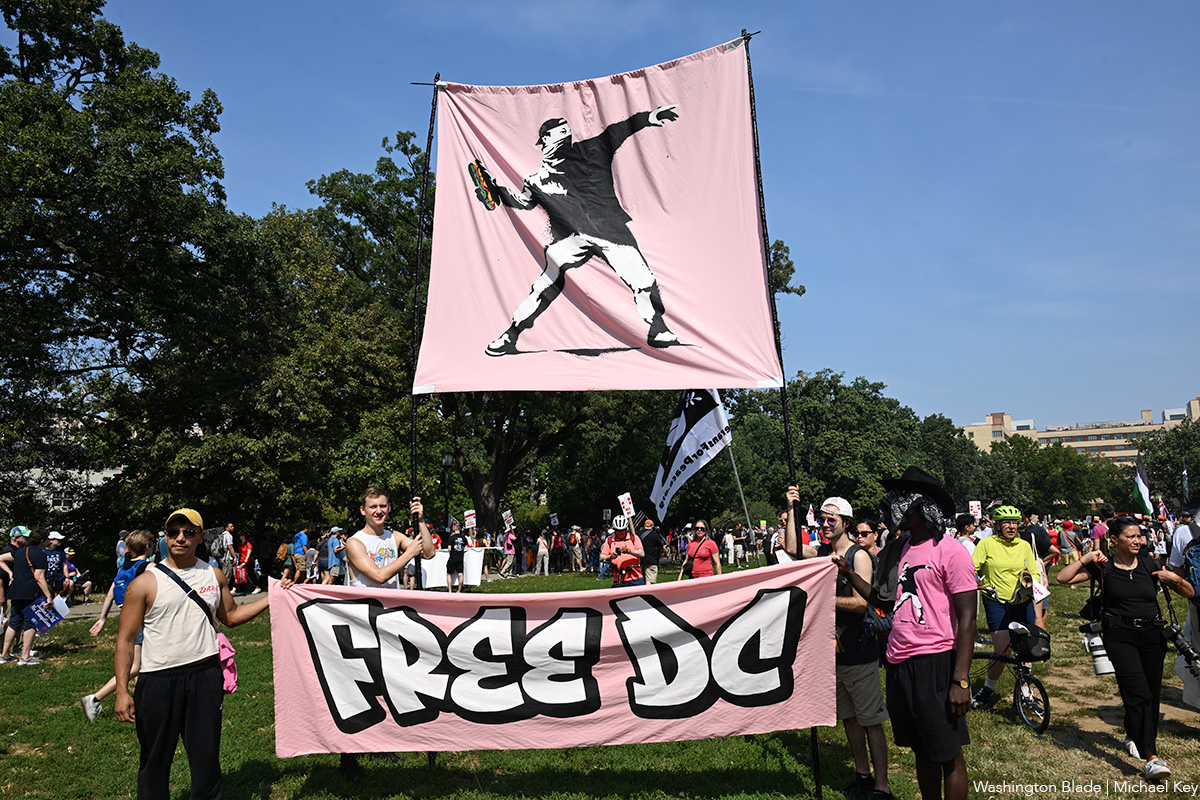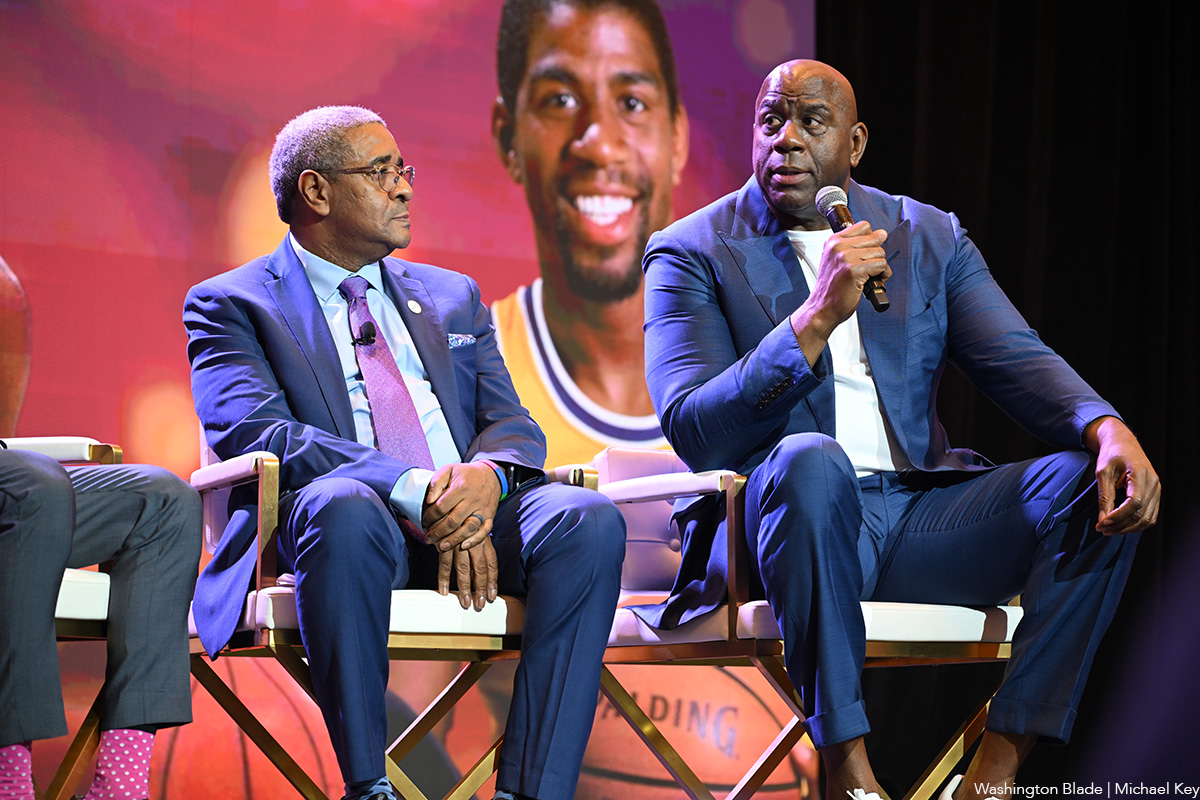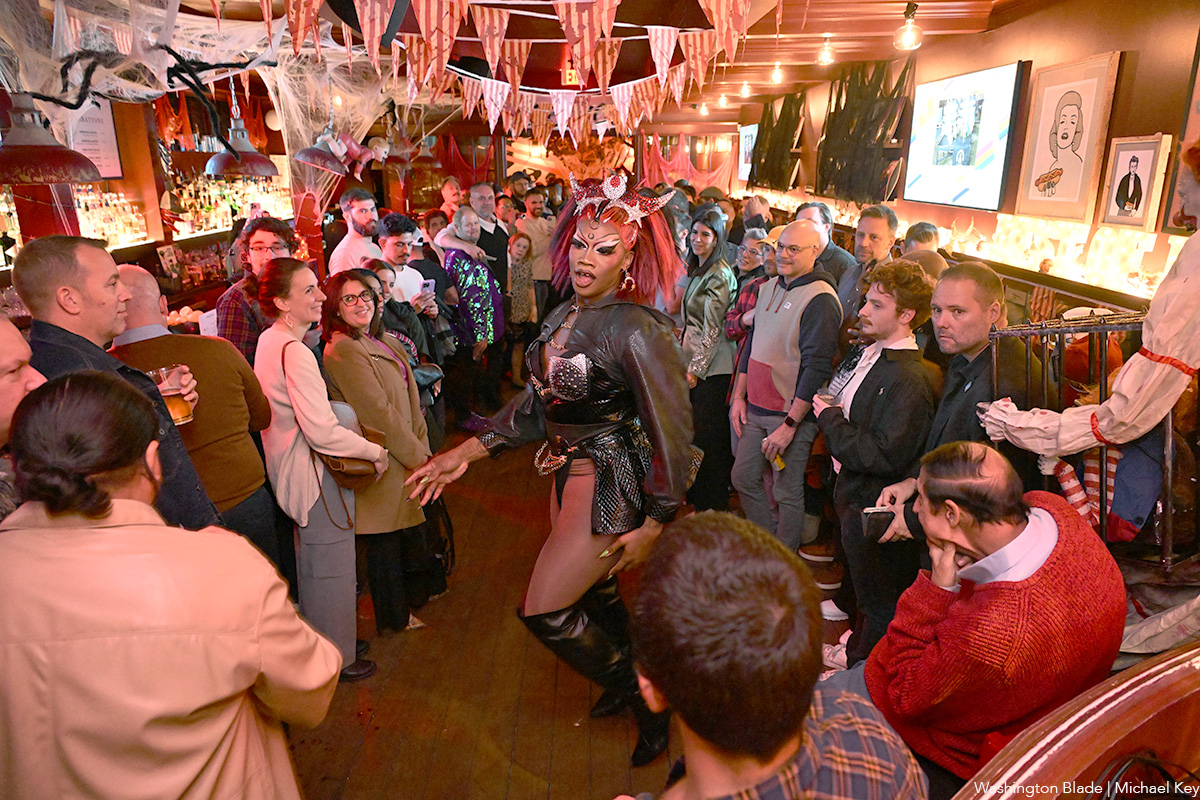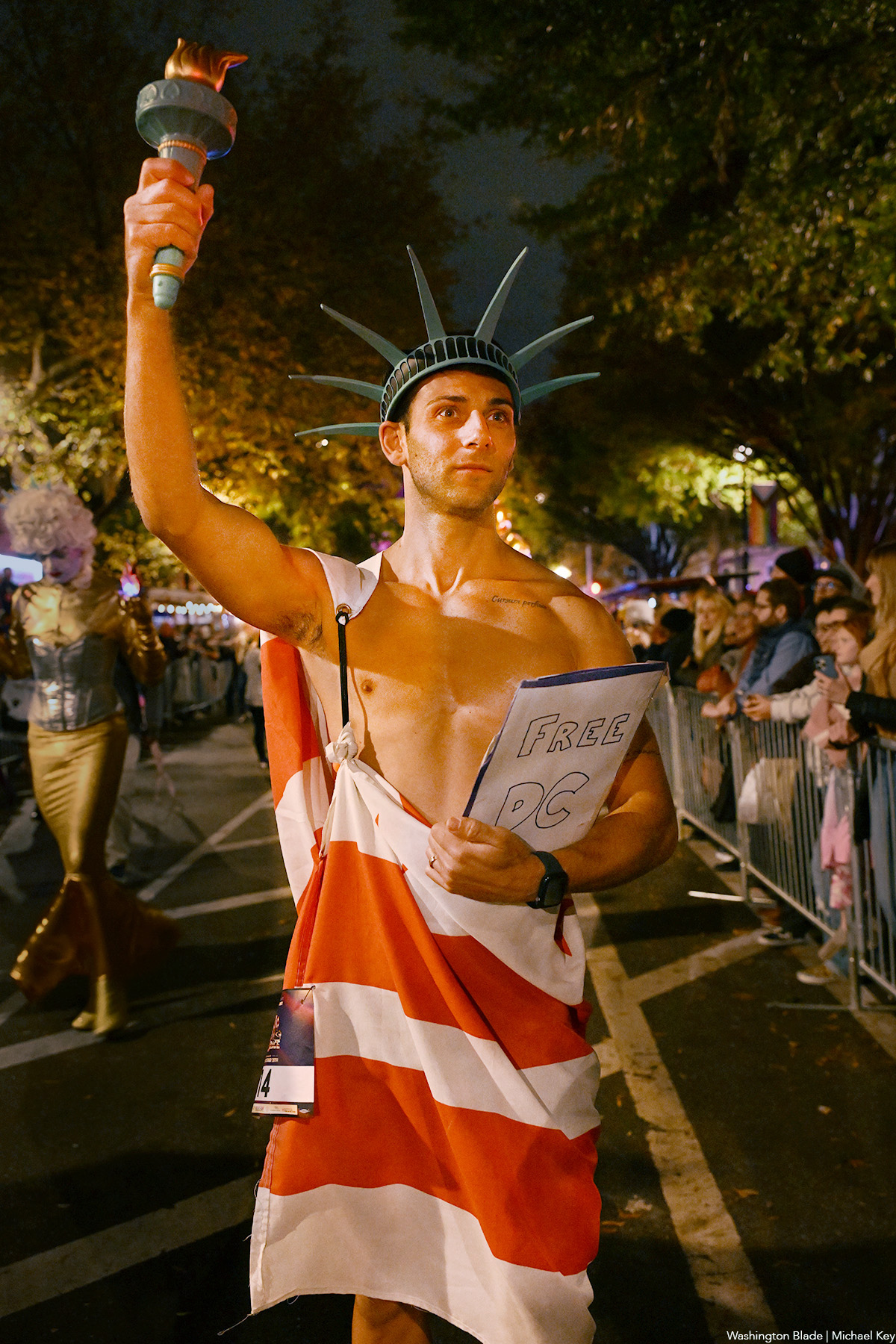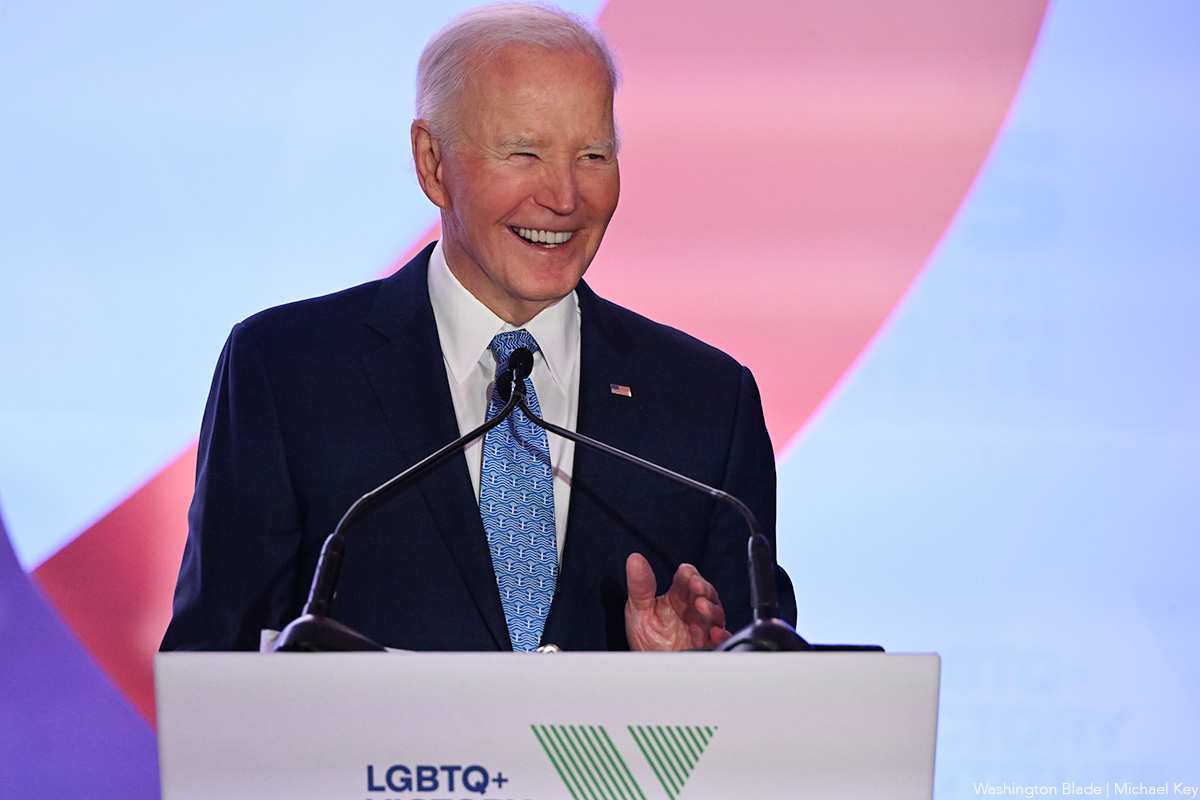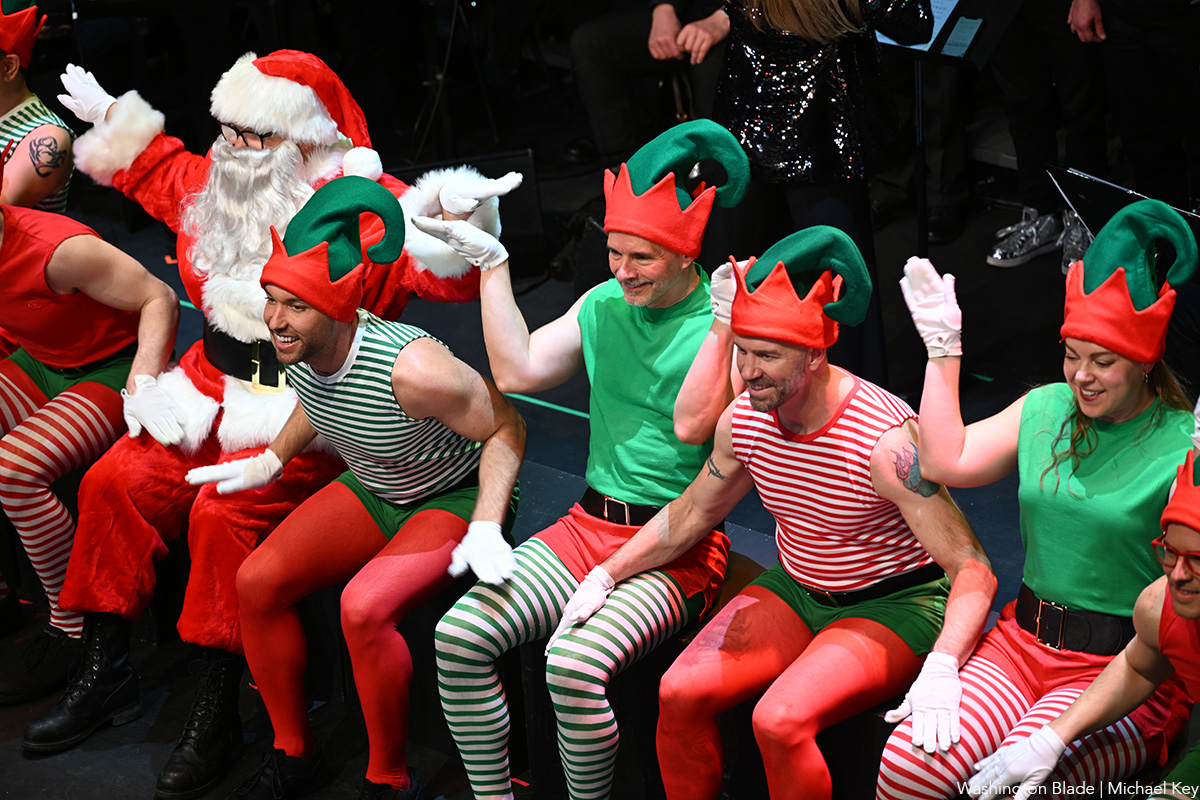Arts & Entertainment
A snitch in time …
‘Harry Potter’-inspired game enthralls gay athlete
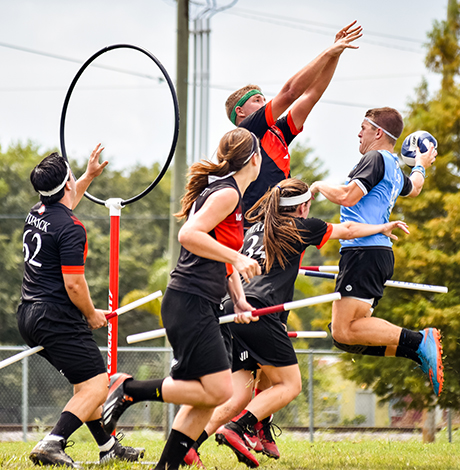
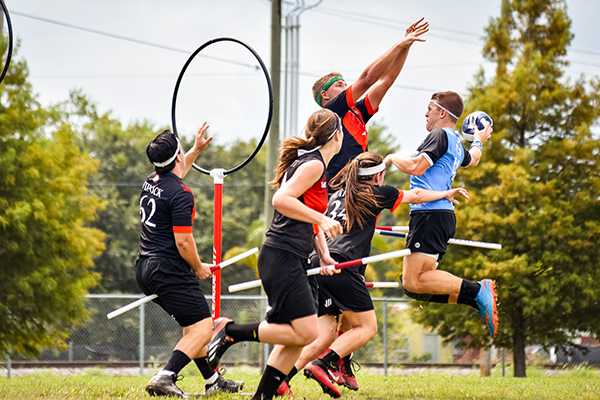
Kedzie Teller (far right) playing quidditch with the Austin Outlaws during the 2016 Major League Quidditch tournament. (Photo by Tayyeb Mubarik)
Often life-changing moments come out of the blue.
In spring, 2009, Kedzie Teller stumbled upon a quidditch match between Boston University and Emerson College. His first thought was, “This can’t be real.”
What he didn’t know at that moment was that quidditch, a game inspired by one played in the “Harry Potter” books (albeit sans magical elements), would define the next eight years of his life.
Quidditch is one of the fastest-growing sports in the country with about 200 college and community teams registered with US Quidditch. In 2015, the sport went pro with 16 teams making up four divisions. Locally, Major League Quidditch has representation by the Washington Admirals.
The rest of the world is also catching onto the sport which has been described as a mix of rugby, handball and dodgeball. The International Quidditch Association World Cup is held every two years and in 2016 it drew teams from 21 countries.
Teller grew up in a soccer family all over New England with three sisters who also played the sport. Teller played on travel teams and captained his high school soccer team where he was all-state. He was also a sprinter on the track team and when it came time to pick a college, he had to make a choice.
“I had soccer offers from Division II colleges, but I am very competitive and I wanted to be an athlete at a Division I college,” Teller says. “I ended up accepting a track offer from Boston University in part because they had a communications program for journalism.”
When Teller first noticed the quidditch team on campus, it was the end of his freshman year and he was leaving the track team due to personal differences with the coaching. Hungry for a competitive outlet, he went to a quidditch practice at the beginning of his sophomore year and was immediately hooked.
“It is very competitive and super fun. I fell in love at the first practice,” Teller says. “The team was a mix of athletes and people who love Harry Potter and I met a lot of people who I wouldn’t have met otherwise. We also won a lot and I like to win.”
Teller played for Boston University Quidditch as a chaser for three years and captained in his senior year. When he graduated in 2012, he thought his career was over. Instead, he was selected to the United States National Quidditch Team and played in the inaugural World Cup in London winning a gold medal.
Reinvigorated, he returned to Boston and formed his own team, Q.C. Boston. By that time, US Quidditch had begun allowing community teams to compete against college teams. He was selected again to the national team in 2014 and won another gold medal at the World Cup in Vancouver.
“It has been so special being a part of this sport early on and to watch it develop,” Teller says. “The rules have evolved and the sport is incredibly better now.”
So much better in fact, that there are rumblings of the possibility that quidditch will be an Olympic sport someday. The International Olympic Committee has a list of guidelines when considering a new sport that includes outreach to youth. Yes, kidditch is alive and well.
Teller moved to Texas in 2015 to work as a brand strategist and began playing US Quidditch with the Lone Star Quidditch Club. He was sidelined by a torn ACL but his competitive spirit was still burning bright.
“People said I was done, but I got into the best shape of my life and came back better than ever,” he says. “The experience taught me how much I loved quidditch and how much I wanted to stay in sports.”
Teller was selected as an alternate to the United States National Quidditch Team in 2016 and turned pro when he qualified for the Austin Outlaw’s Major League Quidditch team.
He was selected again in 2017 for the Outlaws team only to have his season cut short when he moved to Philadelphia to further his professional career with the Social Channel. The Outlaws recently won the Major League Quidditch Championships and had a surprise for Teller.
“Little did I know that my GM/Coaching staff had kept me on the roster and collected a medal that they saved for me,” Teller says. “The gesture left me more grateful than they can understand and it was a beautiful way for things to end.”
He is now settling into life in Philadelphia, still involved in sports and playing tennis several times a week. His work as the director of content development for the Social Channel includes producing video content for the Women’s Tennis Association. In 2016, he became a sports ambassador for Athlete Ally whose mission is to end homophobia and transphobia in sports.
Teller came out in his freshman year of college and out to his family at age 20. All along he has always found acceptance from his quidditch family. The governing bodies of quidditch have established gender identity guidelines that put them on the forefront of forward thinking.
“Major League Quidditch was very receptive to getting on board with Athlete Ally,” Teller says. “The sport of quidditch has always felt so inclusive. I was safe and super protected.”
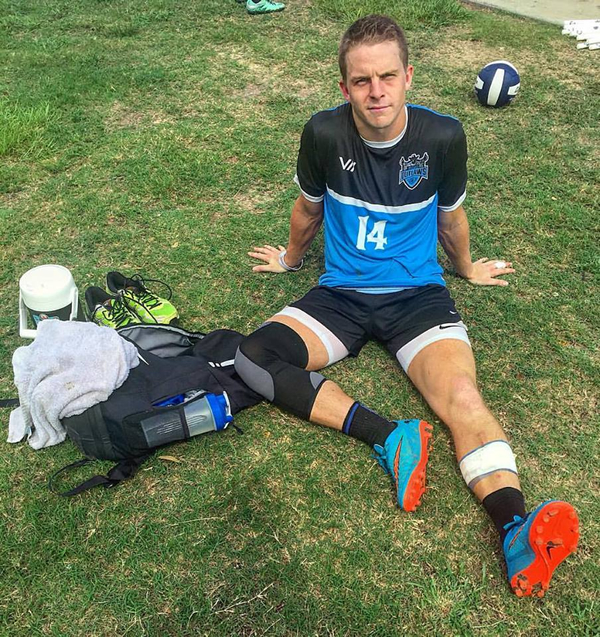
Kedzie Teller sits on the field after a quidditch match. (Photo courtesy Kedzie Teller)
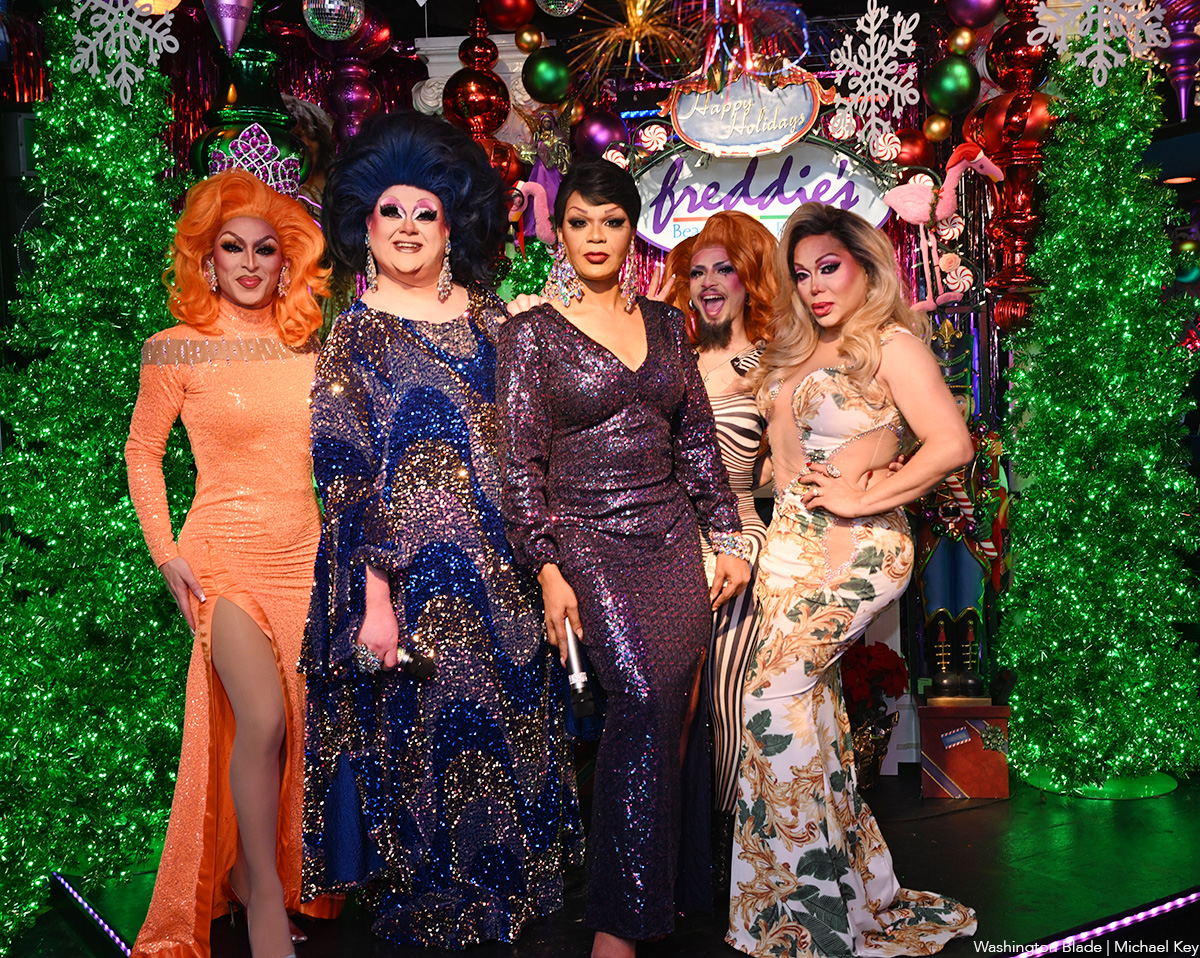
The Freddie’s Follies drag show was held at Freddie’s Beach Bar in Arlington, Va. on Saturday, Jan. 3. Performers included Monet Dupree, Michelle Livigne, Shirley Naytch, Gigi Paris Couture and Shenandoah.
(Washington Blade photos by Michael Key)

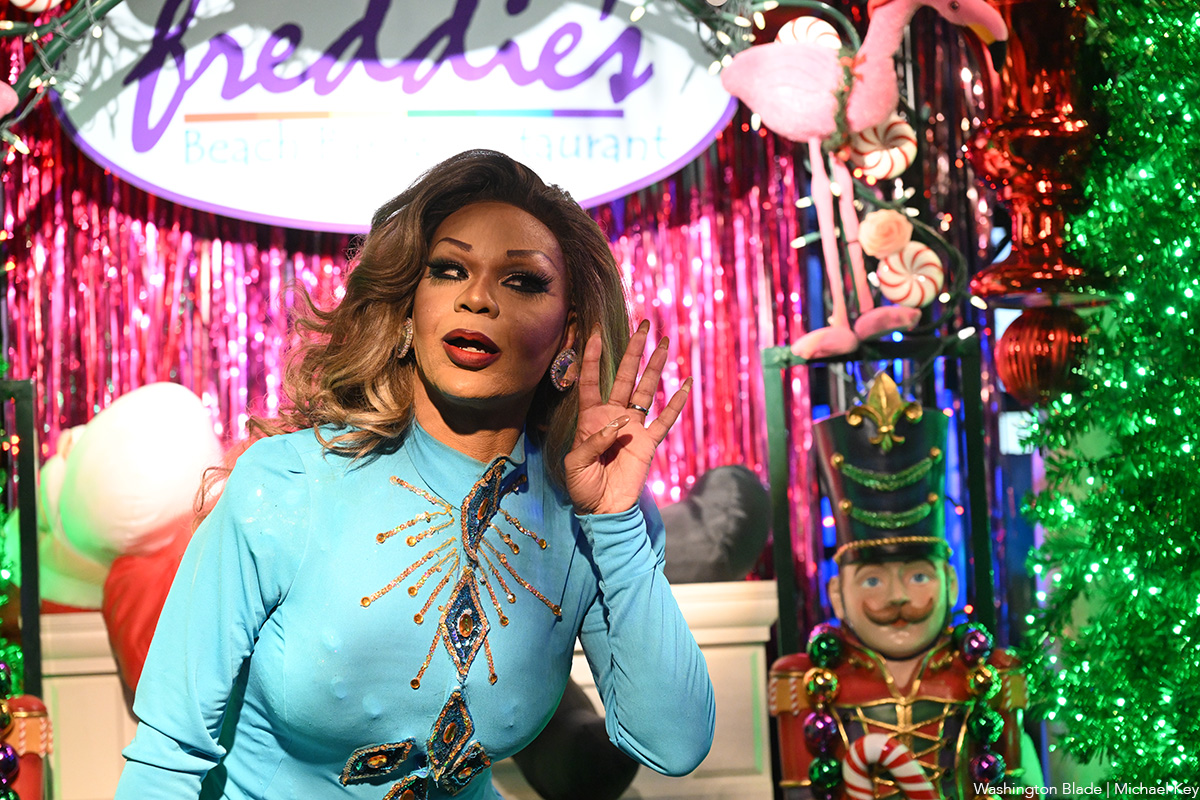





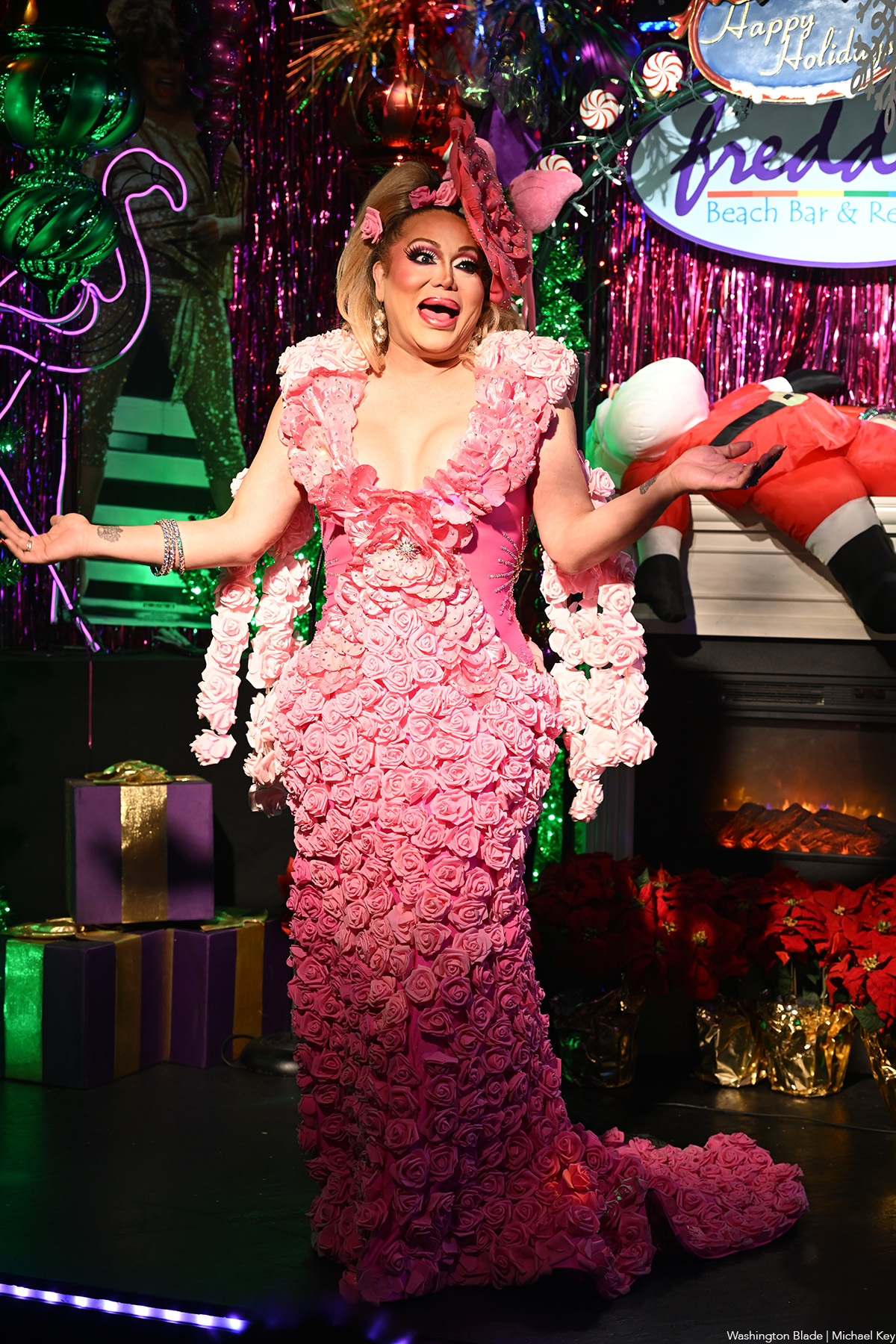
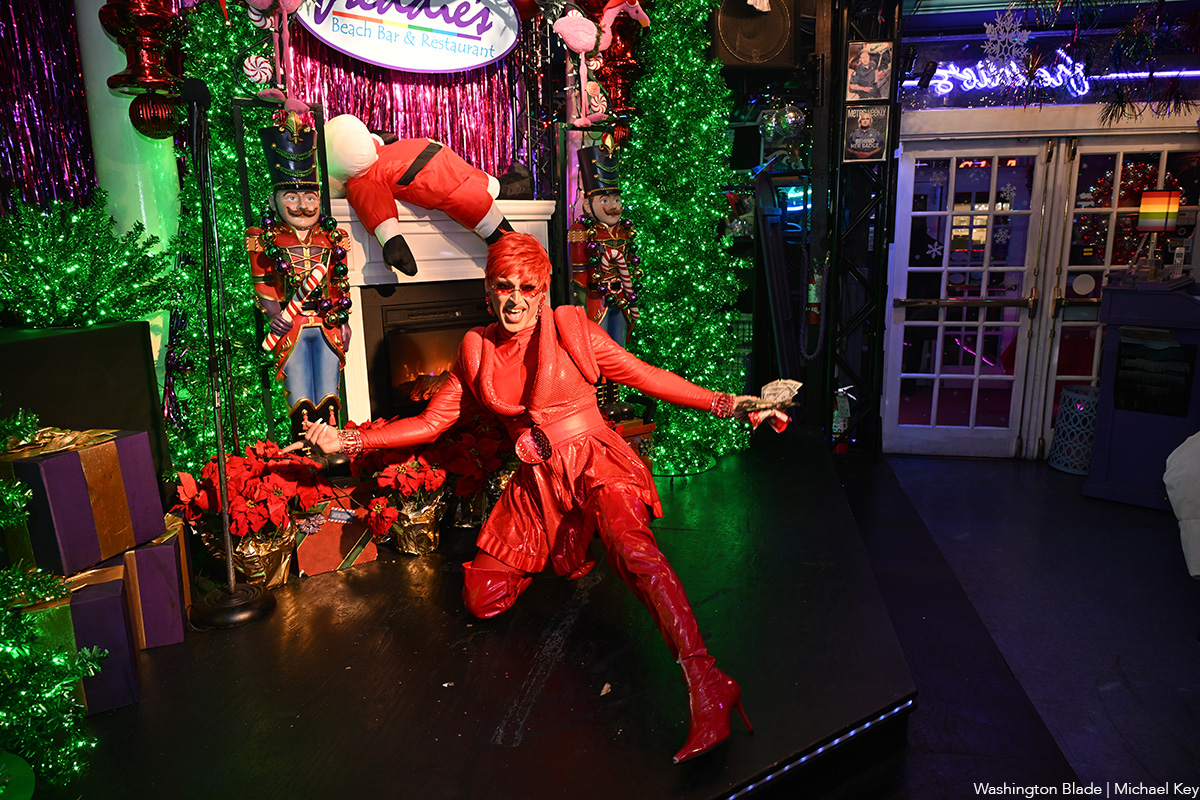
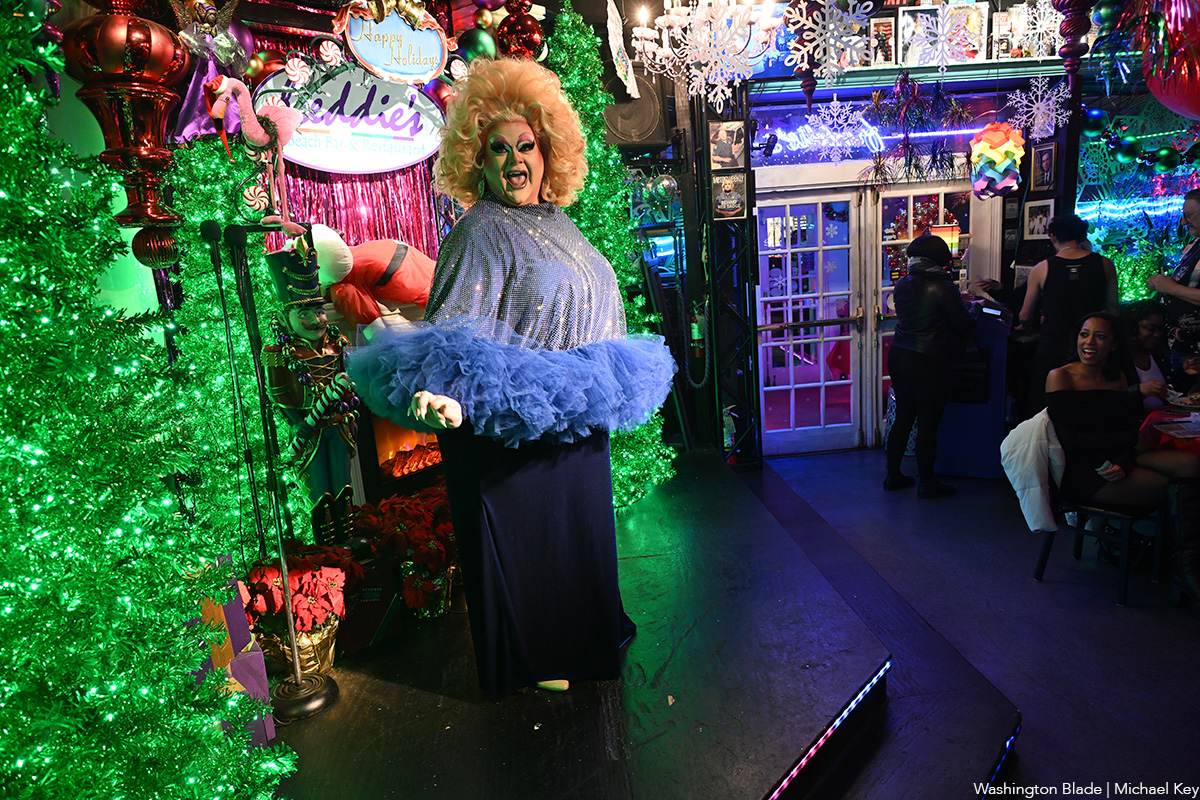
a&e features
Queer highlights of the 2026 Critics Choice Awards: Aunt Gladys, that ‘Heated Rivalry’ shoutout and more
Amy Madigan’s win in the supporting actress category puts her in serious contention to win the Oscar for ‘Weapons’
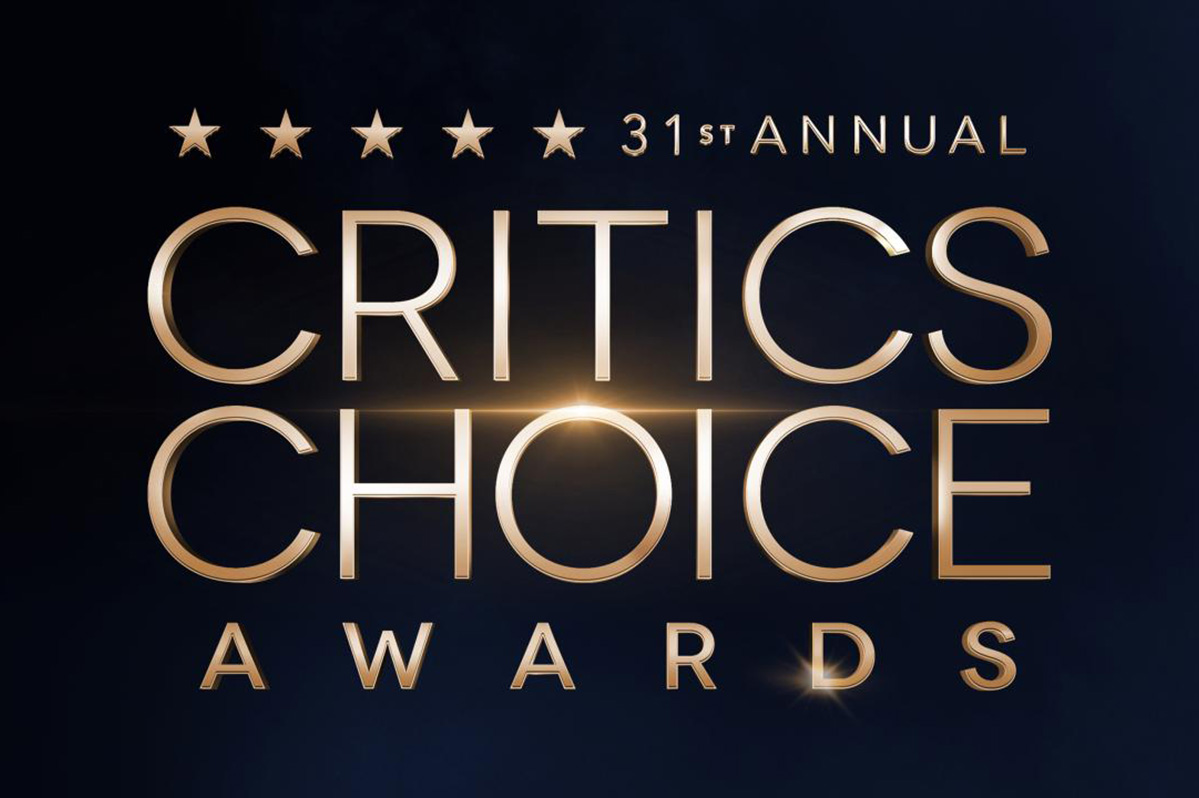
From Chelsea Handler shouting out Heated Rivalry in her opening monologue to Amy Madigan proving that horror performances can (and should) be taken seriously, the Critics Choice Awards provided plenty of iconic moments for queer movie fans to celebrate on the long road to Oscar night.
Handler kicked off the ceremony by recapping the biggest moments in pop culture last year, from Wicked: For Good to Sinners. She also made room to joke about the surprise hit TV sensation on everyone’s minds: “Shoutout to Heated Rivalry. Everyone loves it! Gay men love it, women love it, straight men who say they aren’t gay but work out at Equinox love it!”
The back-to-back wins for Jacob Elordi in Frankenstein and Amy Madigan in Weapons are notable, given the horror bias that awards voters typically have. Aunt Gladys instantly became a pop culture phenomenon within the LGBTQ+ community when Zach Cregger’s hit horror comedy released in August, but the thought that Madigan could be a serious awards contender for such a fun, out-there performance seemed improbable to most months ago. Now, considering the sheer amount of critics’ attention she’s received over the past month, there’s no denying she’s in the running for the Oscar.
“I really wasn’t expecting all of this because I thought people would like the movie, and I thought people would dig Gladys, but you love Gladys! I mean, it’s crazy,” Madigan said during her acceptance speech. “I get [sent] makeup tutorials and paintings. I even got one weird thing about how she’s a sex icon also, which I didn’t go too deep into that one.”
Over on the TV side, Rhea Seehorn won in the incredibly competitive best actress in a drama series category for her acclaimed performance as Carol in Pluribus, beating out the likes of Emmy winner Britt Lower for Severance, Carrie Coon for The White Lotus, and Bella Ramsey for The Last of Us. Pluribus, which was created by Breaking Bad’s showrunner Vince Gilligan, has been celebrated by audiences for its rich exploration of queer trauma and conversion therapy.
Jean Smart was Hack’s only win of the night, as Hannah Einbinder couldn’t repeat her Emmy victory in the supporting actress in a comedy series category against Janelle James, who nabbed a trophy for Abbott Elementary. Hacks lost the best comedy series award to The Studio, as it did at the Emmys in September. And in the limited series category, Erin Doherty repeated her Emmy success in supporting actress, joining in yet another Adolescence awards sweep.
As Oscar fans speculate on what these Critics Choice wins mean for future ceremonies, we have next week’s Golden Globes ceremony to look forward to on Jan. 11.
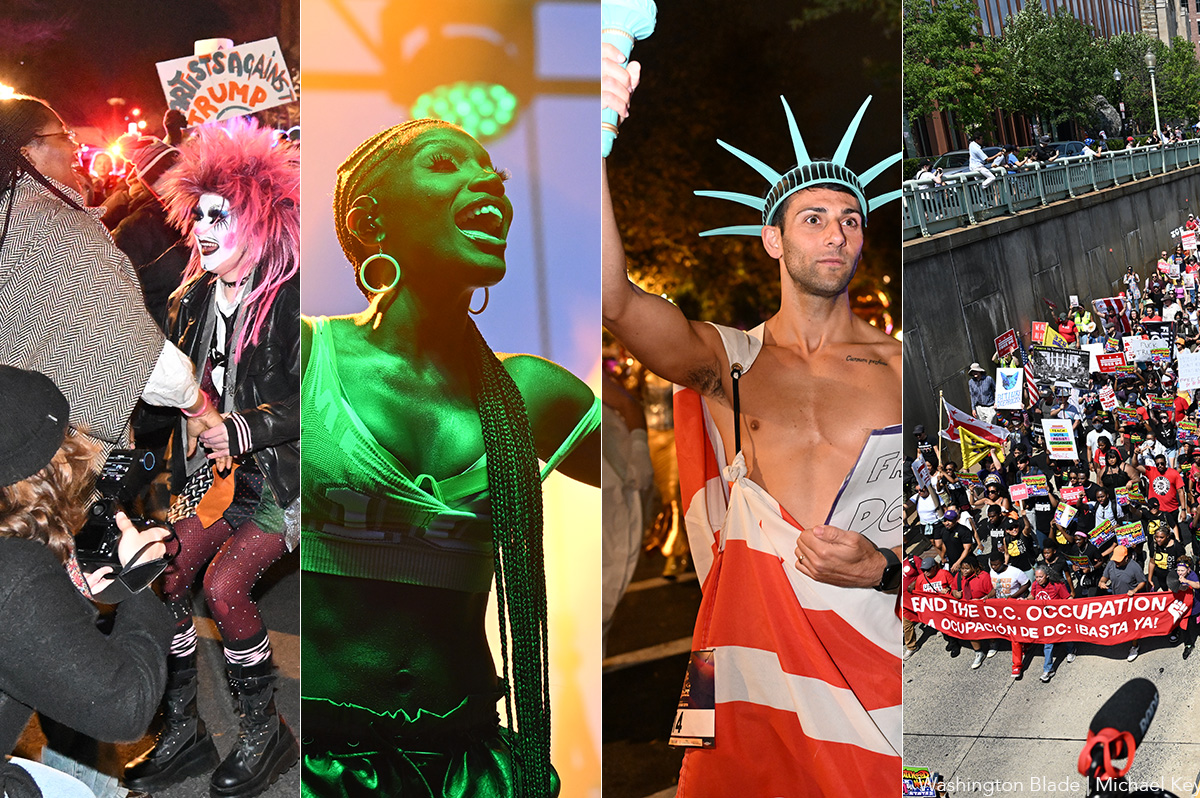
(Washington Blade photos by Michael Key)
